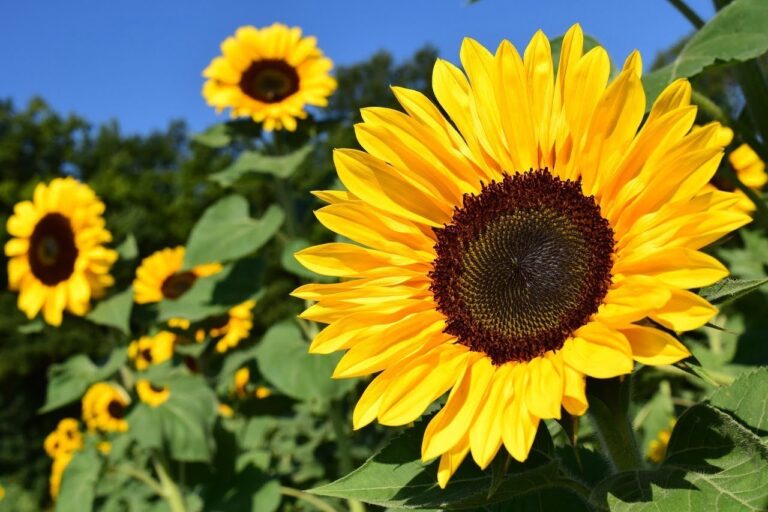The sunflower is a plant with a straight and thick stem, brown center and beautiful yellow petals. It is one of the favorite flowers for ornamental purposes, due to its color and elegance. But, beyond its beauty, it offers multiple benefits and uses.
The Helianthus annuus, The scientific name for sunflower, it is native to North America, but is now produced in many corners of the world, due to its versatility. It can survive a wide variety of environmental conditions, but grows best in full sun. It is an annual plant, which means that it germinates, flowers and dies within a year. They can grow up to 3 meters tall, provided the right conditions are met. cultivation.
Sunflower uses
In addition to being an essential part of the diet of animals and insects that extract their pollen, sunflowers - particularly their seeds - are an important source of food for poultry and farm animals, such as chickens, pigs and cows.
They are also used in the manufacture of certain paints and varnishes, as they contain yellow pigments, which can be extracted without modifying their color.
Another use, although better known, is the production of edible oil, a source of heart-healthy unsaturated fats and vitamin E with antioxidant properties. Because of its light color, it is an important source of energy and nutrients. It is considered "premium" because of its high quality.
Its use as an alternative fuel for diesel engines, a more sustainable and environmentally friendly alternative to fossil fuels, has also been explored.
Curious fact
It is called sunflower because during the day it turns towards the sun. Curiously, this happens while the plant is young, but once it has matured, it stops turning and always stays in the same position.



